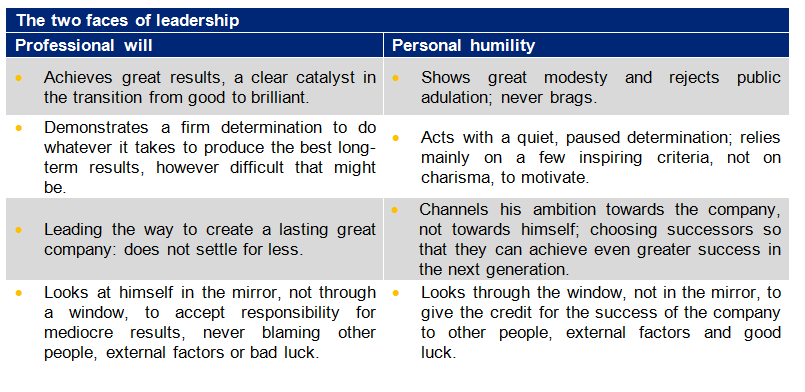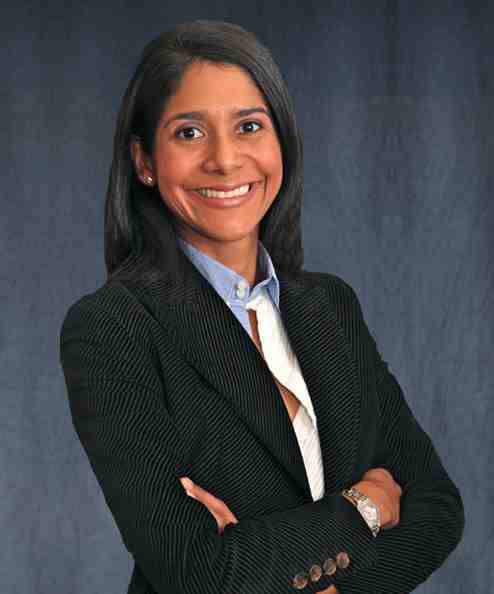The sustainable company: One part humility, one part willpower
Bogotá, Colombia − The UN, the World Economic Forum and the ILO are just a few of the international organisations discussing the term “sustainable” and what it means.

The general concept of "sustainable development" refers to a form of progress that meets current needs without compromising the ability of future generations to meet their own needs. In the words of the Copenhagen Consensus, the social dimension of sustainable development typically lies, above all, in the commitment to "promote social integration by fostering stable, safe and just societies, that are based on the promotion and protection of all human rights and in non-discrimination, tolerance, respect for diversity, equality of opportunities, security and participation of all people, including disadvantaged and vulnerable groups and people."
We can thus say that a sustainable company is an organism that allows both present and future generations to benefit from productive employment with professional development and a balanced personal life.
In recent years, we have witnessed the consequences of large companies operating with no regard for sustainability. The managers in these companies certainly displayed drive and ambition, but it was not expressed as commitment to the organisation. Instead, these managers sought only selfish short-term benefits, with no regard for the future.
The current crisis, in particular the situation in some European countries, shows us that it is imperative to change course while we can. This should be a wake-up call to Latin America: we cannot build sustainable societies unless our businesses and industries aim to be not only good, but excellent, so we can leave a strong legacy to our children and our children's children.
A sustainable company cannot be built by a single person, no matter how great his or her leadership skills. We will only change the current situation if we take an active role in the society to which we belong. As Fred Kofman would say, "What do we want to be, victims or actors?”
Each and every individual who is part of an organisation can be a leader in the field. We need companies to carry out training programs to help raise awareness about the importance of self-leadership as a starting point to lead or manage others. We must become sustainable leaders and create a culture that engenders humility and willpower as two pillars of sustainable leadership.
I encourage companies to build leaders at every level of the hierarchy, people who are able to question, to debate and to rethink the ways of doing things. People who only execute orders in the shade of an exceptional leader are worthless; true exceptional leaders are concerned about leaving their legacy and educating the next generation that will take over.
Let us take a look at the reality here in Colombia; do we have sustainable leaders in our business community? "Mercolíderes" (www.merco.info) evaluates the following variables to determine a sustainable leader:
- Strategic vision and accomplishment of objectives
- Business acumen
- Team building
- Promotion of ethical behavior and CSR
- International projection
- Innovation
- Good communication
The Merco rankings have existed for ten years now, and are one of the few ranking schemes that give us insight into the management achievements of individuals, providing some guidelines from which we can deduce whether a person is a sustainable leader. I believe that we can also add two additional variables: willpower and humility, which are well-defined by Jim Collins in his book "Good to Great."
 Figure 1 Comparative table: Will v Humility. Own source
Figure 1 Comparative table: Will v Humility. Own source
We need sustainable leaders to make the Colombian business industry not only good, but outstanding. Talent development is thus one of the pillars for the construction of sustainable companies, creating a new collective consciousness of how to do business.
 Fernanda Garcia is the Country Manager for Colombia at Pedersen & Partners. Before joining the firm, Ms. Garcia was the Country Manager for Colombia for another international Executive Search firm, where she was responsible for the business development of the client portfolio in industries such as Telecommunications, IT, Consumer Goods, Finance, Oil & Gas and Services. She has extensive experience in consulting and project management in Europe and Latin America with strong knowledge of human resources, change management and business processes. Before moving to the Executive Search industry, Ms. Garcia was a Senior Account Manager for a well-known human consulting firm based in Madrid, Spain. She has also gained experience as a Change Management Consultant at Ernst & Young, where she developed the practice for Colombia, Perú and Costa Rica.
Fernanda Garcia is the Country Manager for Colombia at Pedersen & Partners. Before joining the firm, Ms. Garcia was the Country Manager for Colombia for another international Executive Search firm, where she was responsible for the business development of the client portfolio in industries such as Telecommunications, IT, Consumer Goods, Finance, Oil & Gas and Services. She has extensive experience in consulting and project management in Europe and Latin America with strong knowledge of human resources, change management and business processes. Before moving to the Executive Search industry, Ms. Garcia was a Senior Account Manager for a well-known human consulting firm based in Madrid, Spain. She has also gained experience as a Change Management Consultant at Ernst & Young, where she developed the practice for Colombia, Perú and Costa Rica.
Pedersen & Partners is a leading international Executive Search firm. We operate 56 wholly owned offices in 52 countries across Europe, the Middle East, Africa, Asia & the Americas. Our values Trust, Relationship and Professionalism apply to our interaction with clients as well as executives. More information about Pedersen & Partners is available at www.pedersenandpartners.com
If you would like to conduct an interview with a representative of Pedersen & Partners, or have other media-related requests, please contact: Diana Danu, Marketing and Communications Manager at: diana.danu@pedersenandpartners.com
